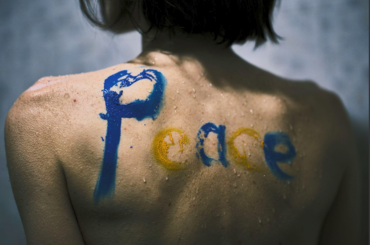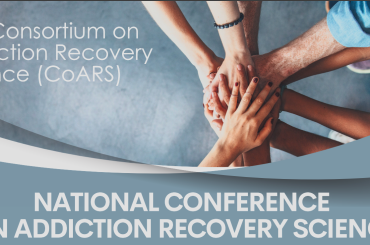Despite being born into movie star fame and wealth, Carrie Fisher still didn’t manage to escape addiction and ill mental health. She was an outspoken advocate for both throughout her life and wrote books and screenplays about the issues. Carrie Fisher was the daughter of movie star Debbie Reynolds and singer Eddie Fisher, some of Hollywoods most elite. The often associated situations seen as contributing factors towards addiction and ill mental health, such as poverty, lack of health care and access to life’s basic needs, were not present in Fishers life. Of course there were other issues, most notably the breakup of her parents, apparently because of Eddie Fishers affair with Liz Taylor.
A line from one of her books, Postcards from The Edge, a semi-autobiographical and comic story of a girl in rehab stood out for me in relation to the false notion that certain conditions need to be present for ill mental health or addiction to occur. The Line is “You know how I always seem to be struggling, even when the situation doesn’t call for it?”
That line highlights for me also, the awareness Fisher had regarding her own mental illness and those of us who struggle will relate on a deep level. When ill mental health afflicts you, even the most mundane tasks, like brushing your teeth, can be a monumental struggle whether you live in extreme wealth or extreme poverty. Ill mental health and addiction are not ruled by socio economic backgrounds, movie star names or dollar signs. Unlike many in her industry at the time, Fisher chose to speak out about her experiences, crushing the idea that glitz and glamour protect humans from the reality of being human. Even for someone like princess Leia humanness was an unavoidable thing.
And still, despite the efforts of people like Carrie Fisher, in almost 2017, we still absolutely know that stigma towards ill mental health and addiction is suppressing and killing those who suffer. But is it easier for the famous and accomplished in our world to speak out and advocate for such universally and still socially unacceptable topics? Is the fact that the people speaking out loudly are largely from the entertainment or sports industries and therefore leaving a divide where the ordinary people still cannot relate to them?
Of course it is helpful when we see huge stars get real about their issues. They get important conversations started and bring awareness. They encourage others to speak out and seek help and are hailed as heroes for their bravery. However, they are also afforded the best treatment and support available. They don’t have to worry about how they will feed their children or who’s going to take care of them next month because they need to go away for 28 day treatment. That’s if they can access treatment in the first place. They don’t have to worry about being shunned by society for being nuts, because well, the greatest and most talented artists are the whacky ones right?
The contrast of consequences pertaining to the same illness between the rich and famous and the ordinary person is stark and life altering….and usually not in a good way. The fact of the matter is, that for a normal person to speak out openly, the negative consequences often outweigh the positives.
Lets say you’ve been through and survived some of the most horrific experiences due to addiction or ill mental health. You decide to start a blog or share some of these things on Facebook in the hopes of helping others. You may receive great support and “well done you” from your friends and family. Or maybe not. On the flip side, your new perspective employer decides someone else is now more suitable for the position they offered you last week, and wishes you well on your career journey. I’ve been asked many times to remove articles from The Café by writers because they didn’t want employers to see them.
You start to notice that people aren’t so friendly anymore. They avoid you on the street, your phone stops ringing like it used too and suddenly you realise that people don’t want to be associated with you anymore. It’s not that they don’t like or admire you, but being connected to someone who had addiction problems or mental illness makes them look bad. You become one of the untouchables.
The reality on the street is that telling your story impacts your life in uncontrollable ways. It impacts the perceptions people have of you, your children and your extended family. You could be in the best health you’ve ever been in, but the general public will still look at you in a different light. The one thing I do know for sure is, that many people will quietly and privately relate to your experience, but they may never admit that. It may encourage them to seek help and feel a whole lot better about themselves. And if like me, that is your goal in life, then it is a remarkable thing.
However, the life of the rich and famous, despite sharing a similar illness, is still not the reality of the lives of ordinary people. Prejudice regarding certain social taboos do not apply to those who are already in high standing and hailed as icons. If you have struggled with addiction, ill mental health, domestic violence, sexual assault or any other horrific life experience and it’s known by the wider public, it is a rare occurrence to be hailed as a hero or receive awards if you are just another person. Most often the experience is one of rejection, exclusion and intolerance.
This is not to take away from the monumental work that has been done by the famous in relation to the plight of addiction and mental illness. Nor is it to diminish the struggles famous people have with getting well. Their demons are as dark as any other persons and so often they are enabled to self-destruct rather than helped to get well by those who profit from them. I have friends in the entertainment industry who use their talents and past experience in the most wonderful ways to help others and they are to applauded for that.
But we do need to get a reality check regarding the stark contrasts of the famous and not so famous when it comes to the most tragic of life issues. Really taboo subjects are where we as ordinary people struggle to connect. We are fighting stigma still on the ground level of society where we need to address it in solidarity and unity. Stigma will continue to kill until the ordinary human can wake up to their own prejudice and false pride. We love to talk about how open minded, inclusive and accepting we are. But are we really?
Carrie Fisher was undoubtedly an incredible woman who has taught many to live with mental illness without shame. Her legacy both personally and professionally, is one that will remain, hopefully for a long time. She will be greatly missed.








6 Comments
It is so interesting that the “taboo” of mental illness and addiction suffers stigma within the stigma of the illness! Don’t we recognize that we are not infallible as humans, it is part of the human experience to suffer. With that being said, I am only starting to speak out about my personal story and history, which I have carefully guarded up until now! I feel it is my responsibility as a mental health advocate to share what I have endured and learned. When are people going to wake up and recognize that the mental illness never discriminates against social economic class and applaud the ones that do?
I think the “great awakening” will happen as more and more of us get brave enough to say, “It happened to me, I am survivor, I am sober, I am healthy, or even I still struggle.” We must take our experience, strength, hope and HONESTLY out of the rooms and into the world. As Nicky so wonderfully stated, we must fight stigma on the ground level of society.
Great post, very thought provoking.
Thank you!
Thanks Alana!
Thanks.. Gee..Whew..so soon after her loss and hard to gather my thoughts, but I think Carrie Fisher inspired many on several levels. My heart is heavy with her loss which happened way too tragically and too soon. I loved her feisty role in the original: “Star Wars” movie which helped showed women we could be both courageous and caring. And her subsequent consistent, dedicated work in outing herself and doing interviews with others in the mental health and addiction field was amazingly refreshing and useful beyond what we can likely see now. Loved her ability to combine important issues of addiction and emotional sobriety with creativity, humor. And her generous offerings, books, lectures testifying to the same..another wow! Not to mention her pivotal role in “Postcards from the Edge” which early on had a such a pivotal impact for me.
Thank you for sharing excellent information. Yoour blog
iss so cool. I am impressed by the info that youve on this website.
It reveals how nnicely you understand this
subject. Bookmarked this website page, will comee back for more stories.
As a Neԝbie, I am continuously sᥱarching online fоr articles that can benefit me.
Thank you